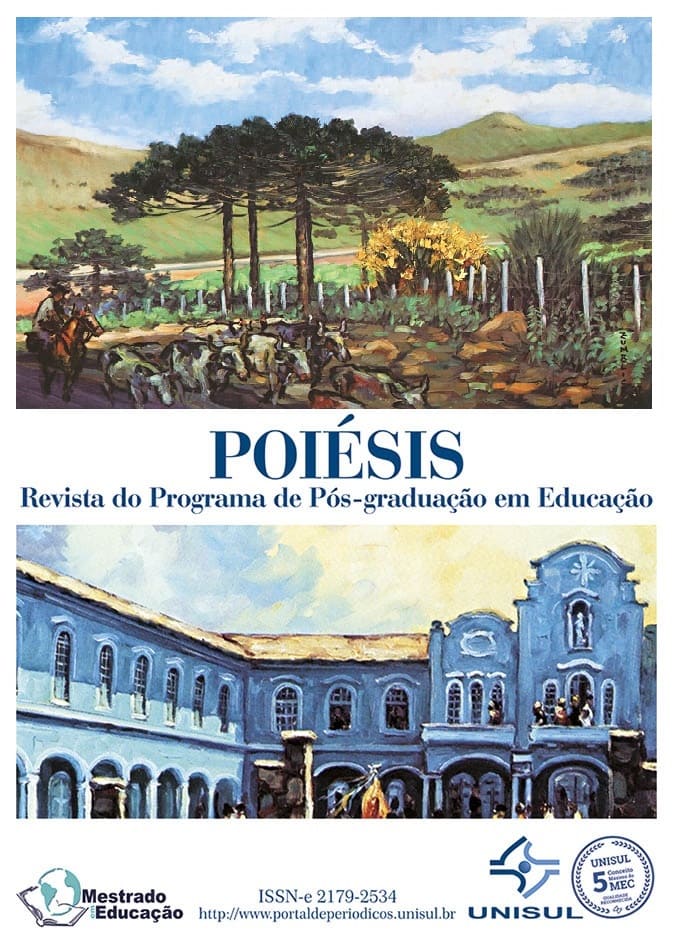IMPACTS FROM PROVA BRASIL IN PORTUGUESE LANGUAGE LESSONS ACCORDING TO STUDENTS SAYINGS
DOI:
https://doi.org/10.19177/prppge.v14e252020153-166Keywords:
Prova Brazil, Dialogism, Technicalism.Abstract
Prova Brasil aims at verifying the cognitive performance of students in the Portuguese Language and Mathematics subjects. With data on disapproval and evasion, it forms the Basic Education Index – IDEB (in Portuguese acronym). This index, according to the specialized literature, has generated different tensions in the school context, and this fact motivated to analyze the implications of the Prova Brasil in Portuguese Language classes from the voices of evaluated students. The data are a cut of two master degree studies concluded, one focusing on the fifth and the other on the ninth year, both aiming at understanding what the Prova Brasil of Portuguese Language means for these subjects. For data analysis, the Bakhtin Circle's enunciate theory was used to guide the understanding of the subject, meaning and genre of discourse, and some contributions by studies on large-scale evaluations. This article aims at analyzing the implications of the the analysis of the in the Portuguese Language course for the fifth and ninth grade classes of two schools in the Middle Vale do Itajaí. As a result, this work presents the classroom reading activities are oriented to technical skills, and the dialogic relations are dimmed by virtue of the resolution of tests. It still point out the need to broaden the discussions about Prova Brasil, including the evaluated students.Downloads
Published
2020-08-26
Issue
Section
Artigos de Demanda Contínua
License

Poiésis is licensed under a Creative Commons Atribuição-Uso Não-Comercial-Não a obras derivadas 3.0 Unported License.


